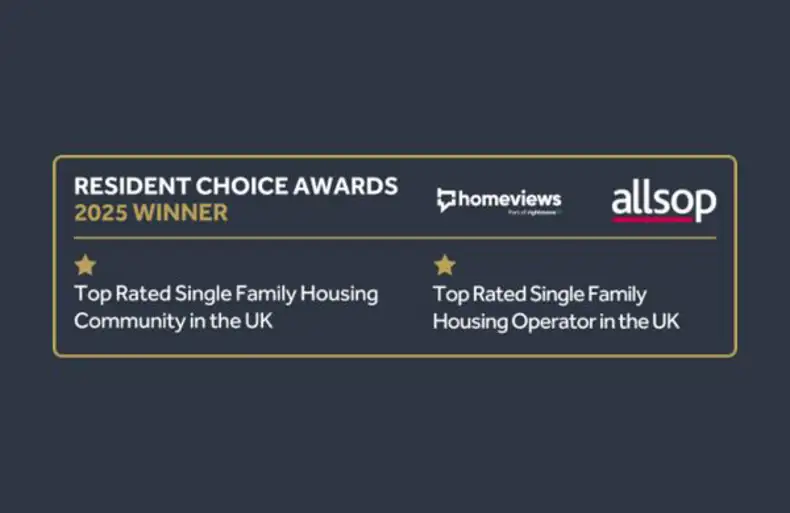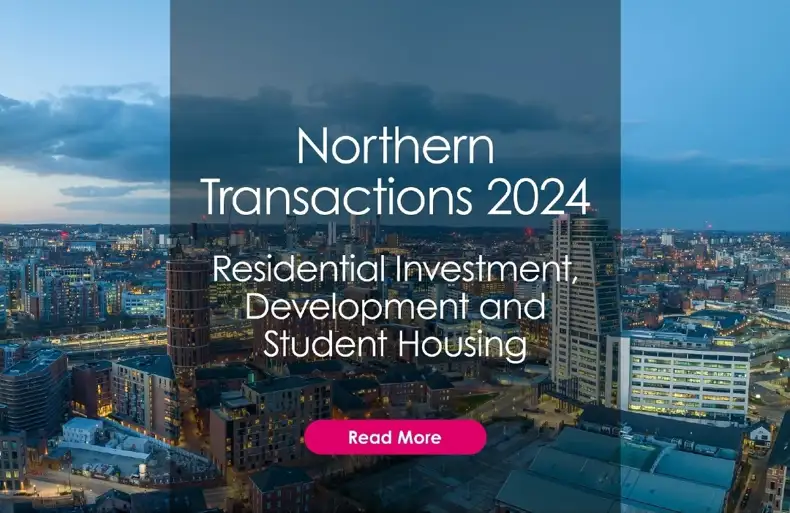Blog | Development and Land | Build to Rent
The Developing Relationship between Traditional Housebuilders and Single-Family Housing Investors

The residential development sector is going through an evolution, shaped by the conventional build to sell approach and the emerging build to rent (BTR) sector and driven by institutional capital being increasingly attracted to the compelling dynamics of the residential investment sector.
There is real opportunity for a more sophisticated investment product to work in parallel with more established housing tenures, to help bring much needed quality homes to residents throughout the country - enter single family housing (SFH). A thorough understanding of this evolving market is crucial for stakeholders, including developers, investors and landowners, as they navigate through the complexities and opportunities that it presents.
We are working on a broad range of projects and the range of clients within this sector is expansive, from individual landowners with small plots, to national companies overseeing large masterplan developments. Each project therefore requires a bespoke strategy, respecting the unique characteristics of the site and the objectives of the landowner / developer.

Whilst the nation’s desire to become homeowners will unlikely ever diminish, developers are still focussed on the traditional approach to housing development. However, BTR’s countercyclical characteristics are becoming more appealing, not just in market slowdown conditions, but as part of a wider mixed tenure approach to development.
The collaboration between traditional house builders and SFH investors is yielding tangible benefits, with the potential to contribute significantly to the Government’s advisory target of constructing 300,000 homes annually. By integrating different housing tenures within a single development, stakeholders can cater to a wider range of housing needs, offering secure rental opportunities for those not ready or able to purchase a home. This collaborative approach also supports the creation of diverse and vibrant communities, where individuals and families can thrive.
Larger sites can derive substantial advantages from a hybrid model that combines build to rent with build to sell. In doing so, they can enhance delivery rates, accelerate place-making and help mixed use sites. Unlike multi-family BTR schemes, SFH seldom provides any on-site private resident amenity, unless of significant scale. When comparing with traditional build to sell housing, there is also no real design difference, or variance on house types. There is however a difference in the unit mix, with investors requiring a weighting towards two and three-bedroom homes, where the bulk of the rental demand lies.
SFH developments offer a unique proposition, combining the benefits of traditional living spaces with the flexibility and convenience of renting. They are designed to offer, not only a place to live, but also a sense of community and access to local amenities that enhance the quality of life for residents. Residents will usually be offered longer tenancies and management will be provided by a professional landlord, whose interest is to retain them in the long term.

Investors continue to be attracted to the sector for several reasons:
- Resilience of income
- Supply / demand imbalance
- Growing resident demand for secure, professionally managed rental homes
- Strong growth dynamics

Looking forward there is a palpable sense of optimism within the industry. Despite the challenges that have arisen, particularly in recent years, there is a belief that the market is poised for growth. Factors, such as the potential for lower interest rates and a stabilisation in construction costs, are expected to provide a stimulus to the housing market.
One of the key barriers identified in the development process is often the planning system, which, despite its challenges, inadvertently fuels the demand for housing and enhances the returns for landowners and developers due to the prolonged nature of the process. However, as the BTR sector gains recognition and local authorities become aware of the advantages, a shift towards a more receptive and understanding approach to planning in this sphere is evident
For those seeking a deeper engagement with the residential development sector, the opportunity to connect with experts who possess a wealth of knowledge and experience is invaluable. Engaging in early dialogue can offer insights into the current market dynamics and help anticipate the trends that will shape the future of housing in the UK.
The residential development market is undoubtedly complex, yet it is ripe with opportunities for those equipped with the right knowledge and foresight. As the sector continues to evolve, the collaboration between various market participants will be critical in addressing the countries housing needs. It is through such partnerships that innovative solutions will emerge, steering the market towards a sustainable and prosperous future.
For those keen to delve deeper into this subject, listen to our recent podcast
Related Insights

Allsop Letting & Management wins three Homeviews Resident Choice Awards 2025
The team is absolutely thrilled to have been named the Top Rated Single Family Housing Operator for the second consecutive ye...

Northern Residential Property Transactions 2024 & Market Update
Take a look at the properties we sold in 2024 and read our market updates.

Meet Reece who is helping to make a Build to Rent community feel like a home
Reece has been nominated for Resident Team Member of the Year at the Homeviews Resident Choice Awards 2025.

Allsop Letting and Management appointed to run Birmingham’s tallest building and first skyscraper
Allsop Letting and Management (ALM), one of the UK's leading providers of professionally managed properties and a subsidiary ...